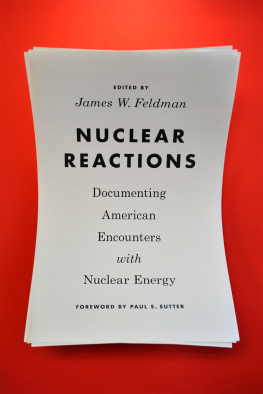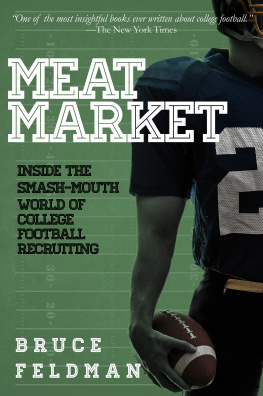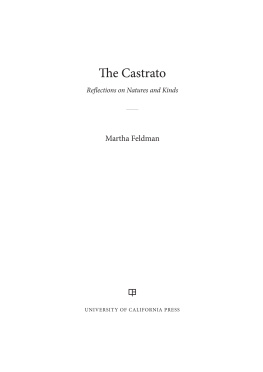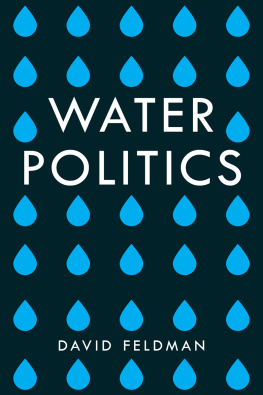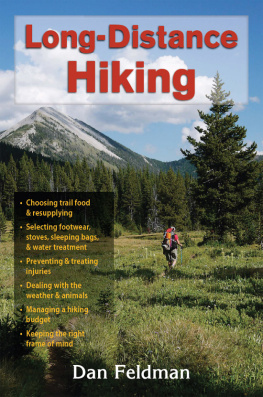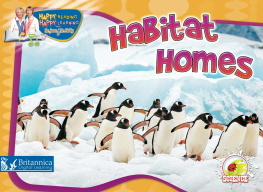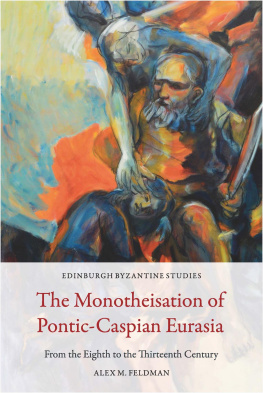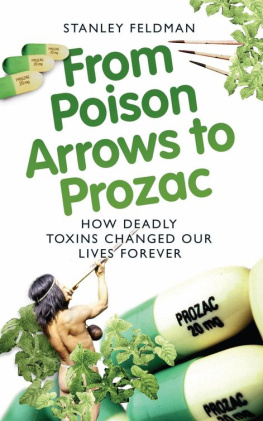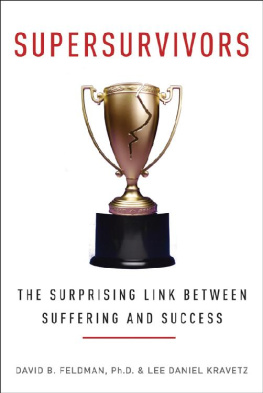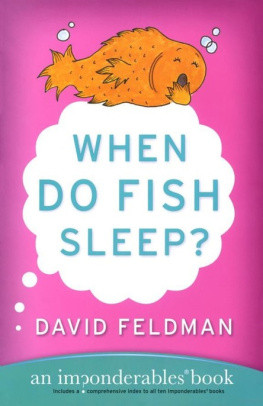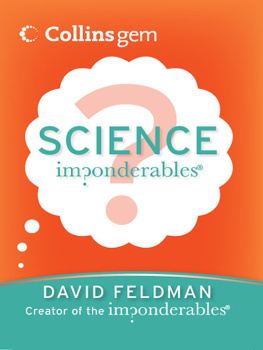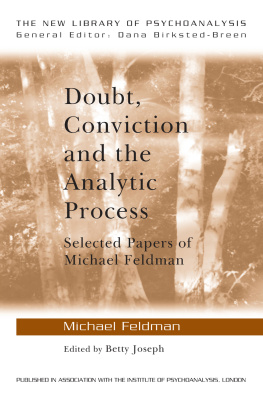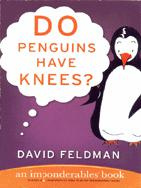Feldman - Life Lived in Relief
Here you can read online Feldman - Life Lived in Relief full text of the book (entire story) in english for free. Download pdf and epub, get meaning, cover and reviews about this ebook. year: 2018, publisher: University of California Press, genre: Politics. Description of the work, (preface) as well as reviews are available. Best literature library LitArk.com created for fans of good reading and offers a wide selection of genres:
Romance novel
Science fiction
Adventure
Detective
Science
History
Home and family
Prose
Art
Politics
Computer
Non-fiction
Religion
Business
Children
Humor
Choose a favorite category and find really read worthwhile books. Enjoy immersion in the world of imagination, feel the emotions of the characters or learn something new for yourself, make an fascinating discovery.

Life Lived in Relief: summary, description and annotation
We offer to read an annotation, description, summary or preface (depends on what the author of the book "Life Lived in Relief" wrote himself). If you haven't found the necessary information about the book — write in the comments, we will try to find it.
Feldman: author's other books
Who wrote Life Lived in Relief? Find out the surname, the name of the author of the book and a list of all author's works by series.
Life Lived in Relief — read online for free the complete book (whole text) full work
Below is the text of the book, divided by pages. System saving the place of the last page read, allows you to conveniently read the book "Life Lived in Relief" online for free, without having to search again every time where you left off. Put a bookmark, and you can go to the page where you finished reading at any time.
Font size:
Interval:
Bookmark:
Ilana Feldman

UNIVERSITY OF CALIFORNIA PRESS
University of California Press, one of the most distinguished university presses in the United States, enriches lives around the world by advancing scholarship in the humanities, social sciences, and natural sciences. Its activities are supported by the UC Press Foundation and by philanthropic contributions from individuals and institutions. For more information, visit www.ucpress.edu .
University of California Press
Oakland, California
2018 by The Regents of the University of California
Library of Congress Cataloging-in-Publication Data
Names: Feldman, Ilana, 1969- author.
Title: Life lived in relief : humanitarian predicaments and Palestinian refugee politics / Ilana Feldman.
Description: Oakland, California : University of California Press, [2018] | Includes bibliographical references and index. |
Identifiers: LCCN 2018028778 (print) | LCCN 2018031929 (ebook) | ISBN 9780520971288 (Epub) | ISBN 9780520299627 (cloth : alk. paper) | ISBN 9780520299634 (pbk. : alk. paper)
Subjects: LCSH: Refugee campsSocial aspects. | HumanitarianismSocial aspectsMiddle East. | Humanitarian assistanceMiddle East. | Palestinian ArabsHistory20th century.
Classification: LCC HV 640.5. P 36 (ebook) | LCC HV 640.5. P 36 F 45 2018 (print) | DDC 325/.210899274056dc23
LC record available at https://lccn.loc.gov/2018028778
27 26 25 24 23 22 21 20 19 18
10 9 8 7 6 5 4 3 2 1
Chapter 1
Chapter 2
Chapter 3
Chapter 4
Chapter 5
Chapter 6
Chapter 7
Chapter 8
This book has been more than a decade in the making, and the debts I have accumulated along the way cannot be easily repaid. My thanks go first to the people who shared so many of their experiences and insights with me as I conducted research in Lebanon, Jordan, and the West Bank. Refugees and humanitarian workersand many people who were bothlet me see something of their lives, learn about their histories, and hear about their hopes and fears for the future. Without their generosity I could not have written this book. Although privacy commitments mean that by and large I cannot name them in the book, I thank them. I am also grateful to the many people who facilitated my archival research across many countries. I thank the archivists and librarians at the United Nations Archives in New York, the UN Relief and Works Agency for Palestine Refugees (UNRWA) Archives in Amman, the New York Public Library, the National Archives in London, the American Friends Service Committee Archives in Philadelphia, the Institute for Palestine Studies in Beirut, the International Committee of the Red Cross (ICRC) Archives in Geneva, and the International Federation of Red Cross Societies (IFRC) Archives in Geneva.
Many people helped with aspects of this research, by facilitating access to research sites, sharing their insights about the lay of the land, feeding and housing me, and generally helping me find my way in the multiple places I visited. Thanks to Oroub El-Abed, Qussay Abu Aker, Jihad Abu Shafra, Diana Allan, Lori Allen, Karen Arter, Naba al Assi, Isshaq al Barbary, Sally Bland, Christo Bursheh, Heather Bursheh, Omar Dewachi, Merrill Eriksen, May Farah, Sandi Hilal, Nedaa Hamouz, Alaa al Homouz, Kholoud al Hussein, Bisan al Jaffari, Saleh Khanneh, Sonya Knox, Ahmad al Lahham, Fireyal Nassar, Murad Odeh, Sara Pellegrini, Alessandro Petti, Rania Sabbah, Aysar al Saifi, Rosemary Sayigh, Kirsten Scheid, and Ayat al Turshan. For research assistance I also thank Emily Johanson, Elena Lukic, Elizabeth Kuhn, Jared Markland, Fraus Masri, Sarah Richardson, Jared Shwartz, and most especially Doaa el Nakhala, whose skills and insights have been crucial to this projects success.
I am grateful for financial support of this project from multiple sources at George Washington University, including the Elliott School ofInternational Affairs, the University Facilitating Fund, the Institute for Middle East Studies, and the Institute for Ethnographic Research. I received generous funding for research and writing from the National Science Foundation (grant no. SES-1026287), the National Endowment for the Humanities, the American Council of Learned Societies, and the Institute for Advanced Study (IAS) in Princeton. I thank all these institutions. In addition to financial support, IAS, where I was a Friends of the Institute for Advanced Study Member in the School of Social Science in 201516, provided an unparalleled intellectual community. I benefited from conversations and feedback from numerous people, most especially Linda Bosniak, Brian Connolly, Carolyn Eichner, Didier Fassin, Monica Kim, Duncan McCargo, Sylvain Perdigon, Joan Scott, Kristin Surak, and Miriam Ticktin.
When I first began thinking about this project, the community of scholars working on humanitarianism was relatively small. Happily it is has now grown tremendously. I have learned a great deal from my engagements over the years with Michael Barnett, Jonathan Benthall, Erica Bornstein, Didier Fassin, Peter Gatrell, Liisa Malkki, Peter Redfield, and Richard Wilson. My conversations and collaborations with Miriam Ticktin have been fundamental to this book, and to all my work. The field of Palestine studies has similarly expanded. I wont repeat the names of the many scholars in this vibrant community mentioned elsewhere in these acknowledgments, but I rely on their insights and comradery. For incisive feedback on the manuscript, tremendous thanks to Lori Allen, Michael Barnett, Amahl Bishara, Didier Fassin, Aye Parla, Peter Redfield, Chris Toensing, and Kate Wahl. The graduate students in my fall 2017 Anthropology of Intervention course also gave me great comments on the manuscript.
At George Washington University, my colleagues in anthropology, Middle East studies, and history sustain a collegial and supportive intellectual environment, for which I am thankful. Richard Grinker deserves special thanks for helping me find and acquire the cover photo. My reading group, now almost ten years strongMona Atia, Johanna Bockman, Elliott Colla, Despina Kakoudaki, Dina Khoury, Melani McAlister, and Andrew Zimmermanalways helps me think better. I am inspired and supported by Nadia Abu el-Haj, Fida Adely, Lara Deeb, Tessa Farmer, Rachel Heiman, Sami Hermez, Darryl Li, Marcy Norton, Michal Ran, Karen Rignall, Shira Robinson, Lisa Rofel, Jonah Rubin, Rashmi Sadana, Sherene Seikaly, Ajantha Subramanian, and Jessica Winegar.
I have been working on this project for a long time and have presented aspects of it in many venues, where I have learned a great deal from commentators and audiences. These places include the New York Academy of Sciences, Rutgers University, North Carolina State University, CUNY-Graduate Center, New York University, McGill University, American University of Beirut, Fluminense Federal University, Institute for Advanced Study, University of Oxford, Cornell University, Washington University in St. Louis, Georgetown University, Stanford University, University of California, Davis, University of Chicago, Birzeit University, Franklin and Marshall College, Aalborg University, Cambridge University, University of Connecticut, University of Colorado, Boulder, Duke University, University of Michigan, University of Bergen, University of California, Los Angeles, Northwestern University, School of Advanced Research, and Arizona State University. Among the many helpful interventions I received, Ill note one specifically. Marnie Thomson, then a graduate student at the University of Colorado, Boulder, pointed out to me that I was describing a politics of living.
Font size:
Interval:
Bookmark:
Similar books «Life Lived in Relief»
Look at similar books to Life Lived in Relief. We have selected literature similar in name and meaning in the hope of providing readers with more options to find new, interesting, not yet read works.
Discussion, reviews of the book Life Lived in Relief and just readers' own opinions. Leave your comments, write what you think about the work, its meaning or the main characters. Specify what exactly you liked and what you didn't like, and why you think so.


